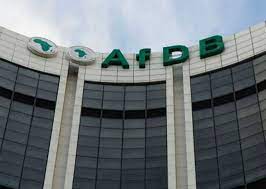The African Development Bank (AfDB), under the leadership of President Akinwumi Adesina, has unveiled a transformative investment plan poised to revolutionize Nigeria’s agricultural landscape. A $4.4 billion injection will fuel the expansion of Special Agro-Industrial Processing Zones (SAPZs) across all 36 states and the Federal Capital Territory. This ambitious initiative aims to propel agricultural transformation, a critical catalyst for broader economic growth and development, particularly at the grassroots level where agriculture directly impacts the livelihoods of millions. Adesina emphasizes that true economic transformation must encompass agricultural advancement, recognizing its profound influence on the lives of ordinary citizens. The SAPZ program, launched in 2022, envisions the establishment of strategically positioned agro-processing clusters, creating vibrant economic hubs that will invigorate rural communities.
The SAPZ program represents a comprehensive approach to agricultural modernization. It addresses key challenges that have long hampered the sector’s potential, including inadequate infrastructure and post-harvest losses. These designated zones will be equipped with essential infrastructure, including reliable power supply, water resources, efficient road networks, digital connectivity, and irrigation systems. This comprehensive infrastructure development will attract agro-processing companies to establish operations within the zones, creating a dynamic ecosystem that connects farmers directly with processors. This proximity will reduce reliance on transporting raw commodities to distant urban centers for processing, minimizing post-harvest losses and maximizing value addition. Furthermore, the SAPZs will generate significant employment opportunities, stimulating economic activity and creating wealth within rural communities.
The establishment of SAPZs will foster a symbiotic relationship between farmers and agro-processing companies. Farmers will have a ready market for their produce, ensuring fair prices and reducing the uncertainty associated with traditional market systems. Agro-processing companies, in turn, will benefit from a consistent supply of high-quality raw materials, enabling them to operate at optimal capacity and produce value-added products for domestic and international markets. This mutually beneficial arrangement will drive agricultural productivity, enhance the quality and value of agricultural output, and create a more resilient and sustainable agricultural sector.
The AfDB’s commitment to the SAPZ program extends beyond Nigeria, encompassing 11 African countries with a total investment exceeding $3 billion. In Nigeria, the initial fundraising target of $750 million was significantly surpassed, culminating in a remarkable $4.4 billion commitment. This substantial investment underscores the confidence in the SAPZ model and its potential to transform Nigeria’s agricultural sector. The AfDB, in collaboration with the Islamic Development Bank and the International Fund for Agricultural Development, has mobilized substantial resources to support the initiative. Furthermore, Adesina’s engagement with Nigerian governors at the Africa Investment Forum played a pivotal role in securing additional funding, demonstrating the collaborative spirit driving the project.
The SAPZ initiative represents a paradigm shift in Nigeria’s approach to agricultural development. Traditionally, the focus has been on primary production with limited emphasis on value addition and processing. The SAPZs will address this gap by facilitating the local processing of agricultural produce, creating value-added products that can command higher prices in domestic and international markets. This will not only increase the profitability of the agricultural sector but also enhance Nigeria’s food security and reduce reliance on imported agricultural products. By processing agricultural produce locally, Nigeria can capture a greater share of the value chain, generating more wealth and creating more jobs within the country.
The success of the SAPZ model in other African countries provides compelling evidence of its potential to transform Nigeria’s agricultural landscape. Adesina expresses unwavering confidence in the program’s ability to deliver positive outcomes for Nigeria, citing its proven track record in other contexts. The strategic positioning of the SAPZs, combined with the comprehensive infrastructure development and the creation of a vibrant agro-processing ecosystem, will unlock the immense potential of Nigeria’s agricultural sector. This initiative promises to usher in a new era of agricultural prosperity, empowering farmers, creating jobs, and driving economic growth. The SAPZ program represents a significant step towards realizing the vision of a vibrant and sustainable agricultural sector in Nigeria, contributing to broader economic development and improved livelihoods for millions of citizens.














